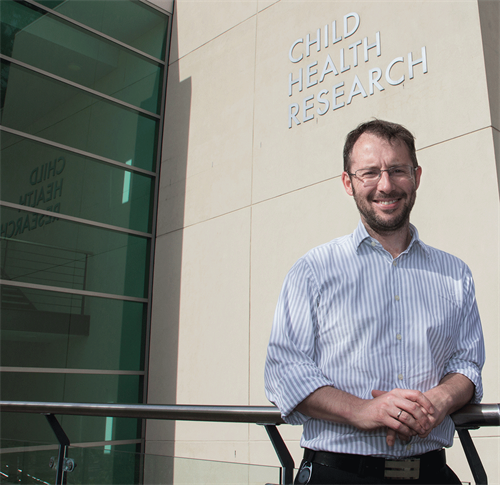Search
Showing results for "early life"
Research
Potassium Ion Channels in Malignant Central Nervous System CancersMalignant central nervous system (CNS) cancers are among the most difficult to treat, with low rates of survival and a high likelihood of recurrence. This is primarily due to their location within the CNS, hindering adequate drug delivery and tumour access via surgery. Furthermore, CNS cancer cells are highly plastic, an adaptive property that enables them to bypass targeted treatment strategies and develop drug resistance.
Research
PI3K activation in neural stem cells drives tumorigenesis which can be ameliorated by targeting the cAMP response element binding proteinOur findings present a novel mouse model for glioma demonstrating that the PI3K pathway is important for initiation of tumorigenesis
Research
Unpacking the complex nature of the autism epidemicThe etiology of autism spectrum disorders is unknown but there are claims of increasing prevalence in many countries.
Research
Rett syndrome in Australia: a review of the epidemiologyTo examine the prevalence, cumulative incidence, and survival in an Australian cohort with Rett syndrome (RTT).
Research
The dystroglycan receptor maintains glioma stem cells in the vascular nicheThese findings reveal a central role of the DG receptor, not only as a structural element, but also as a critical factor promoting mesenchymal-like GBM

News & Events
Researchers receive crucial Near Miss fundingCongratulations to four outstanding The Kids Research Institute Australia researchers who have received funding designed to support researchers who have narrowly missed out on highly competitive national funding.

News & Events
The Kids skin researcher awarded prestigious L’Oréal-UNESCO Women in Science fellowshipDr Asha Bowen, Head of Skin Health at the Wesfarmers Centre of Vaccines and Infectious Diseases, has been awarded a 2018 Fellowship as part of the prestigious L’Oréal-UNESCO Women in Science program.

News & Events
Whooping cough vaccine could be a new weapon in the fight against food allergiesResearchers from The Kids Research Institute Australia and Curtin University will use a $3.9 million grant from the National Health and Medical Research Council to investigate whether a type of whooping cough vaccine could provide bonus protection against food allergies and eczema.
Research
Educational Outcomes of Children in Contact with the Child Protection System: A Longitudinal Population StudyMelissa Fiona Helen O'Donnell Stanley Leonard BPsych (Hons), MPsych, GradDip Ed, PhD FAA FASSA MSc MD FFPHM FAFPHM FRACP FRANZCOG HonDSc HonDUniv
Research
Immunogenicity and clinical effectiveness of the trivalent inactivated influenza vaccine in immunocompromised children undergoing treatment for cancerThe trivalent inactivated influenza vaccine is safe, immunogenic, provides clinical protection and should be administered annually to immunosuppressed children receiving treatment for cancer
